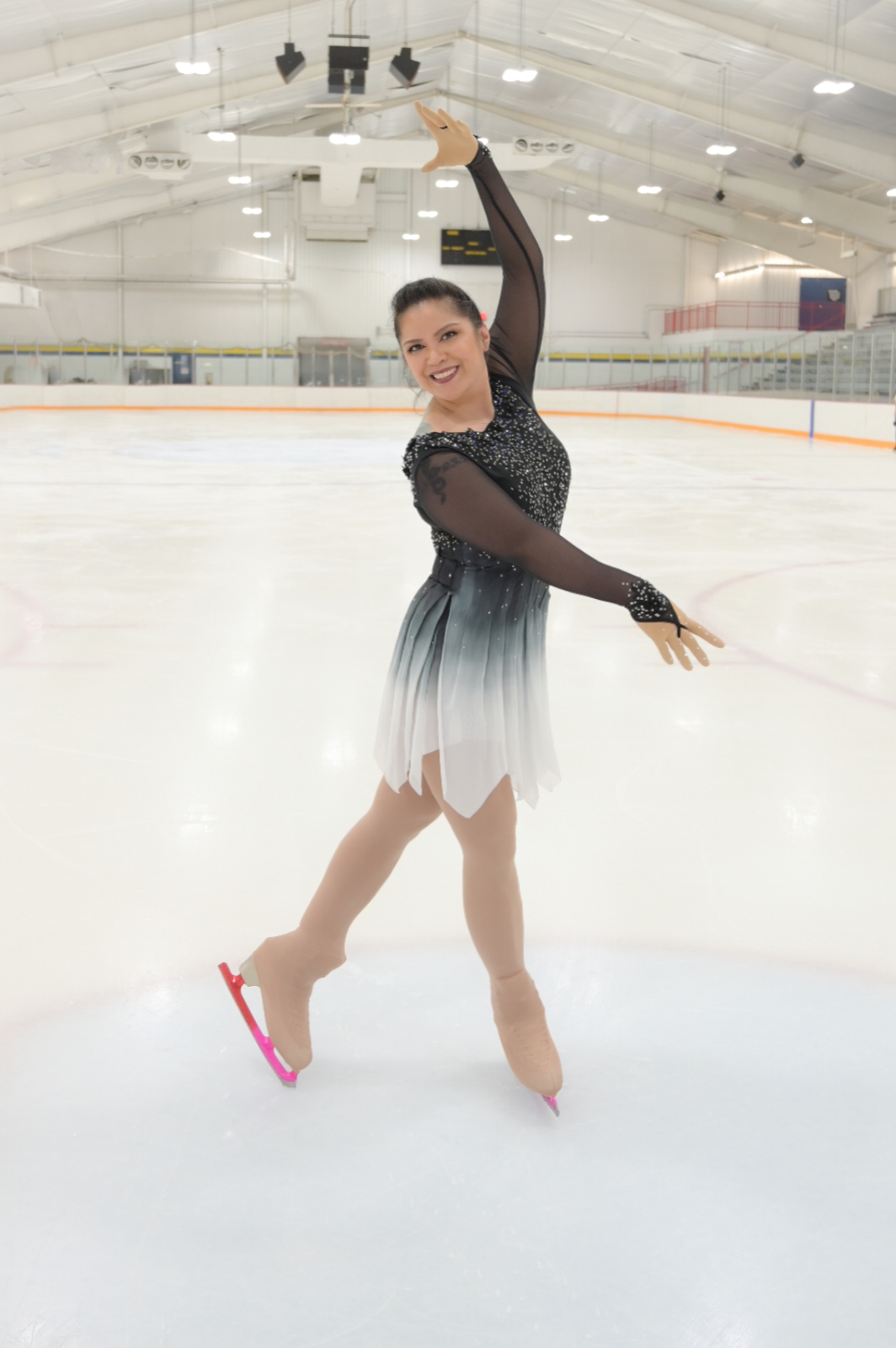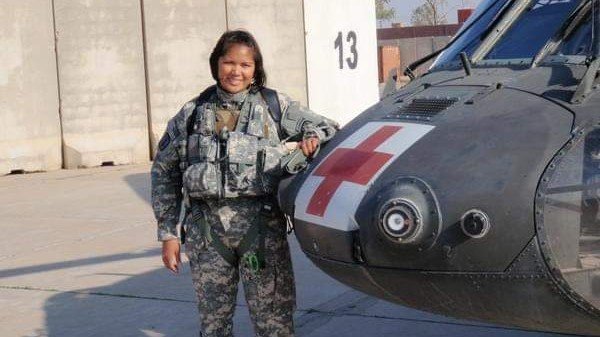National Get Up Day is Feb. 1. Through the month of February, U.S. Figure Skating will be featuring its eight Get Up ambassadors. The following story appeared in the November issue of SKATING magazine.
By Ed Rabinowitz
Victoria Phillippi remembers lacing up her first pair of skates and stepping onto the ice at age 10.
“I felt like I was flying,” Phillippi said. “No matter how fast or how slow, I was able to glide and be free.”
Phillippi, now 39 and a licensed professional counselor with Western Pennsylvania Psych Care, has relied on her return to ice skating to overcome the trauma and post-traumatic stress disorder (PTSD) experienced following her eight years of active duty as a combat medic and later a flight medic in the U.S. Army.
Phillippi’s initial exposure to ice skating came when her family moved from Chicago to the city’s southwest suburbs. Seven Bridges Ice Arena opened in Woodridge, Illinois, and she began attending public sessions.
 “It was awesome,” she recalled.
“It was awesome,” she recalled.
Phillippi joined the learn to skate program and advanced quickly, skipping several levels before moving on to private lessons and eventually competing.
“I remember my first competition,” Phillippi said. “I had an Axel in my opening, and I was so nervous. And when I landed it, I had a huge smile on my face. It helped my confidence a lot.”
But everything changed on Dec. 21, 2004.
Phillippi, who was on her first tour of duty in Iraq, was a trauma team leader at the 67th Combat Support Hospital in Mosul.
“We had our fair share of traumas there,” she said, “but what happened that day pushed me over the edge.”
A powerful explosion ripped through the dining facility at the Army base where soldiers, coalition forces and civilians were eating. The blast was so strong it tore a hole in the building’s concrete floor. It also occurred just two days after her boyfriend (now husband) Michael Phillippi proposed.
“I worked 12 hours straight before being ordered to go home,” Phillippi said. “There were 90 casualties and 22 deaths that day. Michael and I were ordered to pick up body parts. I had people die in my arms. You internalize stuff like that, and feel like you’re not good enough.”
Victoria and Michael married, and their two daughters — Mikayla and Madison — were born after Phillippi’s first tour of duty in Iraq. When she was summoned for her second tour in October 2008, Mikayla was 2 years old and Madison just 7 months old.
“It was hard leaving, but then coming back for mommy duty, that was a very difficult transition,” Phillippi said. “I found myself self-medicating with alcohol and twice attempted suicide. I was not in a good place.”
Eight weeks of residential PTSD treatment over the Christmas holiday followed, but Phillippi still internalized the feeling that she was not good enough, and would not amount to anything.
Then, in 2015, Phillippi’s daughters, seeing photographs of their mother skating as a teenager, decided they wanted to skate, too, and signed on to the learn to skate program at the Beaver County Figure Skating Club in Beaver Falls, Pennsylvania. Phillippi got to know some of the coaches and was drawn back to the ice. In April 2021, she decided she wanted to skate competitively again.
“(Skating) helped me rediscover my purpose,” she said. “To appreciate what I’ve been through and to reconnect with what had once given me so much happiness.”
In November 2021, Phillippi competed for the first time in more than 20 years. And despite being incredibly nervous, she performed well. She then competed in the Pennsylvania State Games in February 2022, which she says was nerve-wracking, and placed fourth.
“I would like to get back to close to where I was,” Phillippi said. “I don’t foresee triples in my future, because we don’t heal from falls as easy as we used to. But it’s my personal challenge, my personal goal, to keep moving forward and see how far I can go.”
As far as her husband is concerned, she has already come a long way.
“She’s relearning all of her doubles,” he said. “She goes to practice and keeps working at it. I admire her determination, strength and resilience. My wife is my hero.”
When Phillippi hears words to that effect, whether from her husband or young children who told her during visits to schools that they wanted to be like her when they grew up, she has to fight back the tears.
“For the longest time I felt I wasn’t good enough,” Phillippi said. “Why take after me? I didn’t do anything special. So when anybody says something like that, it’s very humbling to know that I impact them that way.”


